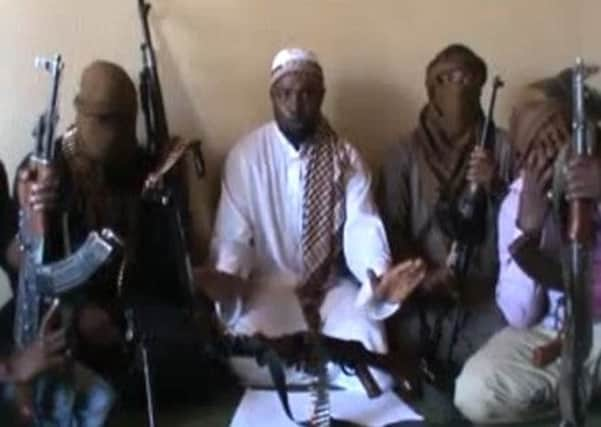Nigeria: 29 students slaughtered in college attack


Survivors said attackers set fire to a locked hostel and shot or slit the throats of anyone trying to escape through a window.
Some of those killed were burned alive inside the building.
Female students were spared by the militants. Attackers entered their dormitories and told them to go home, get married and abandon western education, which the attackers said was anathema to Islam.
Advertisement
Hide AdAdvertisement
Hide AdAdamu Garba said he and other teachers ran away through the bush just after the assault began in the early hours of yesterday at the Federal Government College at Buni Yadi.
It is a co-educational school 45 miles south of Damaturu, the capital of Yobe state. Communications in the area are difficult because extremists last year destroyed a cell phone mast there.
Mr Garba, who teaches at a secondary school attached to the college, said the attackers first set fire to the college administrative block, then moved to the hostels, where they locked students in and started firebombing the buildings.
At one hostel, he said, “students were trying to climb out of the windows and they were slaughtered like sheep by the terrorists who slit their throats. Others who ran were gunned down.” He said students who could not escape were burned alive.
He was speaking in Damaturu, where he and several other teachers had made their way.
Yesterday’s attack brings the toll from attacks blamed on Boko Haram to more than 300 civilians killed this month alone.
It is the first reported in Yobe state and the first school attack reported this year by suspected fighters of the terrorist network of Boko Haram – the name that means Western education is forbidden or filth.
President Goodluck Jonathan told a news conference shortly before the college attack that the Boko Haram attacks were “quite worrisome” but that he was sure “we will get over it”.
Advertisement
Hide AdAdvertisement
Hide AdThousands of Nigerians have lost relatives, houses, businesses, their belongings and livelihoods in the four-year-old rebellion.
And it is likely to anger regional officials who say that the military is losing its war to halt the Islamist uprising in the north-east of Africa’s biggest oil producer. The military has said recent attacks are being perpetrated by militants who have escaped a sustained aerial bombardment and ground assaults on forest hideouts along the border with Cameroon.
Survivors and local officials say that they get no protection. Refugees who have fled to neighbouring states have said that they are fleeing the extremists as much as the fallout from a military campaign in which soldiers are accused of gross human rights abuses including executions of people suspected of helping Boko Haram.
“Everybody is living in fear,” council chairman Maina Ularamu said after Izghe village was attacked twice in a week this month – with militants first killing 106 and burning hundreds of thatched huts, then returning to kill another three people and setting ablaze what little remained of the settlement in neighbouring Adamawa state.
“There is no protection. We cannot predict where and when they are going to attack. People can’t sleep,” Mr Ularamu said.